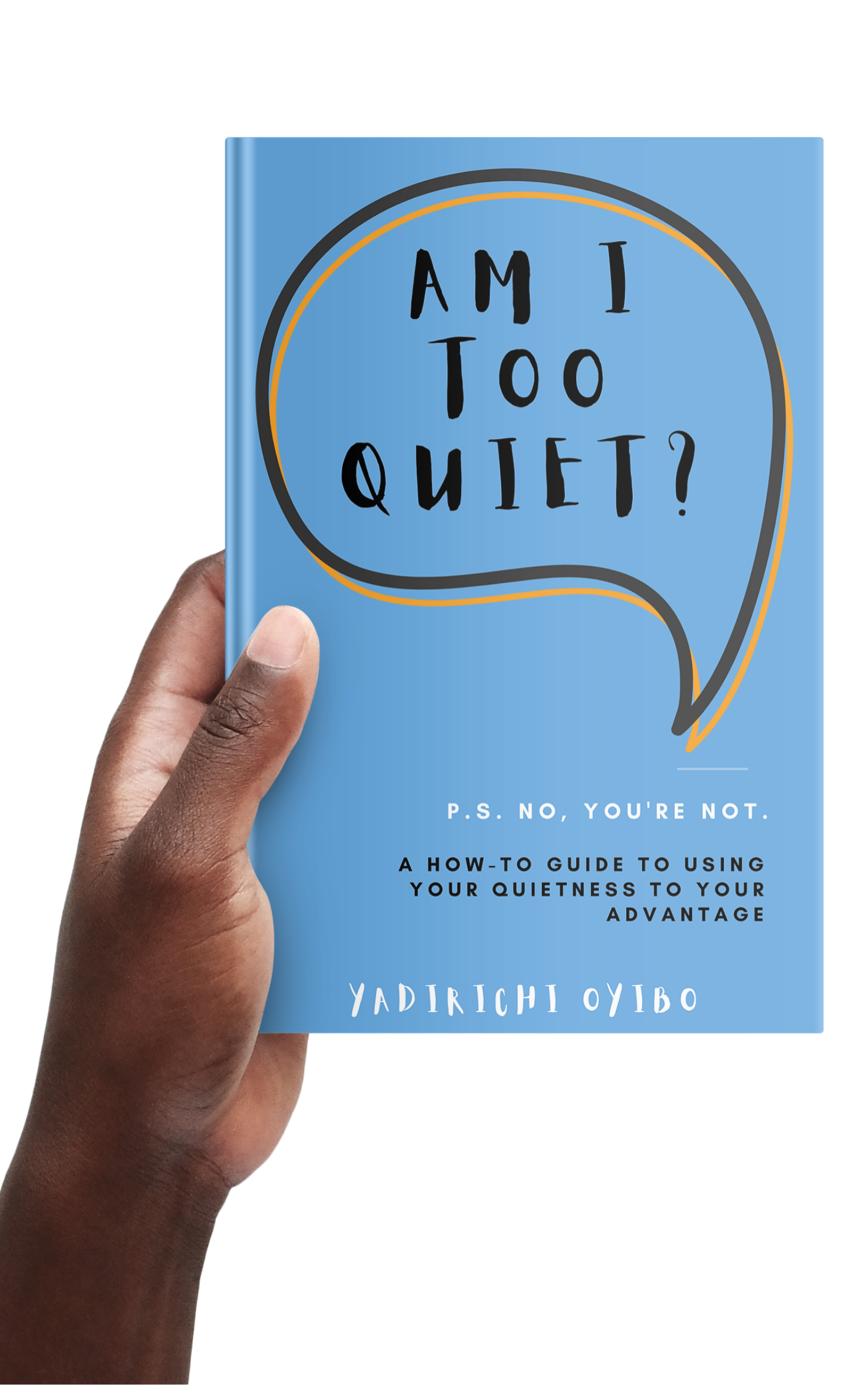I Ditched People-Pleasing for 30 Days—The Results are Interesting
I was 18. My parents gifted me a new phone with a crisp-and-clear camera. I was excited and so were my siblings and they begged me to use my phone for a few hours.
Unfortunately, it wasn’t up to an hour when I got the agonizing news that my new phone was broken—not just broken, crushed like a car ran over it.
According to the story, while taking pictures, the phone fell down the stairs and broke to the extent that the motherboard was showing.
That was the day I asked myself, “Why am I such a people-pleaser?”
My intuition said ‘no’ when they initially asked for my phone, but I didn’t want to seem like the stingy sibling who doesn’t let anyone touch their stuff. But in the end, all I got was an unrepairable phone and a budget that couldn’t replace it.
This experience made me realize the patterns in all my relationships—I was trying to please everyone. It was so bad that even my romantic relationship at the time was toxic because I was unconsciously putting my feelings and needs last.
And so, I decided to stop.
In this article, I’ll share my experience with stopping people-pleasing and some tips that will change your life. But first, what is a people pleaser? Let’s start with the basic people-pleaser definition.
People Pleasing Meaning
What is People-Pleasing? People-pleasing is when someone goes out of their way to make others happy, often at their own expense. It’s like bending over backward to avoid conflict or ensure everyone else is comfortable, even if it means sacrificing your own needs or feelings.
Why is it relevant today? In today’s society, especially with social media and the constant pressure to be "liked," being a people pleaser can be pretty common. We’re all wired to seek acceptance, but sometimes that need can overshadow our own well-being. Plus, in workplaces or relationships, people-pleasing might seem like the easiest way to keep peace or avoid drama.
People-Pleasing Behaviors:
Saying "yes" to things you really want to say "no" to.
Apologizing excessively, even when it's not your fault.
Avoiding conflict at all costs.
Changing your opinions or interests based on who you’re around.
Suppressing your emotions to avoid burdening others.
Common Traits and Signs of a People-Pleaser:
Difficulty Saying No: You agree to things even when you're overwhelmed or uninterested.
Fear of Rejection: Worrying that people won't like you if you don't go along with their wishes.
Need for Approval: Constantly seeking validation from others to feel good about yourself.
Avoidance of Conflict: You’d rather stay silent than express a differing opinion.
Low Self-Esteem: Your self-worth is tied to how others perceive you.
Over-Apologizing: Saying sorry too often, even for minor things.
Feeling Resentful: Agreeing to things begrudgingly and feeling resentful afterward.
Difficulty Accepting Help: Preferring to handle everything yourself to avoid inconveniencing others.
It’s a tricky habit to break because it often comes from a place of kindness or wanting to be supportive. But at the end of the day, you matter too. It’s about finding that balance between being there for others and being true to yourself.
Kindness vs People-Pleasing
The difference between kindness and people-pleasing is all about intention and boundaries.
Kindness comes from a genuine place—you help or support others because you truly want to, with no expectation of approval or avoiding conflict.
People-pleasing is driven by fear or a need for validation—you say "yes" even when you don't want to, just to keep others happy or avoid tension.
A kind person helps because it aligns with their values. A people-pleaser helps even when it drains them because they’re afraid of disappointing others.
Kindness respects both your needs and the needs of others. People-pleasing puts others first at your own expense.
It’s a fine line, but the key is checking in with yourself:
"Am I doing this out of love and care, or because I’m afraid of saying no?"
Causes of People-Pleasing Behavior
At the core, people-pleasing is often a coping mechanism developed over time, but the good news? It can be unlearned. The first step is understanding why you do it—so you're already on the right path if you’re reading this article.
1. Early Life Influences
A lot of people-pleasing habits start in childhood. If you grew up in an environment where love and approval felt conditional—meaning you were praised when you pleased others but criticized when you expressed your own needs—you might have learned to put others first as a survival tactic.
Strict or overly critical parents – If you were expected to be the "good child" or avoid upsetting adults, you may have internalized the idea that your worth depends on making others happy.
Parental approval and validation – If love or praise was given mainly when you were helpful, obedient, or agreeable, you might associate people-pleasing with being worthy of love.
Growing up around conflict – If your household was full of tension, you may have become a peacekeeper, learning to smooth things over to avoid fights or drama.
2. Cultural and Societal Factors
Some cultures and societies reinforce people-pleasing, especially when they emphasize community harmony, obedience, or self-sacrifice.
Gender expectations – Women, in particular, are often socialized to be caregivers, agreeable, and accommodating. This can lead to difficulty setting boundaries.
Workplace culture – In some job environments, saying "yes" to everything is rewarded, even when it leads to burnout.
Religious or moral beliefs – Some teachings emphasize selflessness to the point where setting boundaries can feel selfish.
Social media pressure – The digital age makes it easy to seek validation through likes and approval, reinforcing a need to be likable at all times.
3. Personality Traits
Some people are naturally more prone to people-pleasing due to their personality.
High agreeableness – If you’re naturally empathetic and cooperative, you might struggle with saying no.
Conflict avoidance – If confrontation makes you anxious, you may default to pleasing people just to keep the peace.
Perfectionism – If you feel like you must always be "good enough" for others, you might go above and beyond to meet their expectations.
4. Psychological Underpinnings
There are deeper psychological factors that fuel people-pleasing, often tied to fear and self-worth.
Fear of rejection – Many people-pleasers believe saying "no" will lead to abandonment or disapproval.
Low self-esteem – If you don’t feel confident in your worth, you may look to others for validation.
Anxiety and guilt – The idea of disappointing someone might create extreme discomfort, leading to automatic compliance.
One key concept here is sociotropy—a psychological tendency where people prioritize relationships and approval over personal needs. Those high in sociotropy often feel their self-worth is tied to how well they maintain harmony with others, making them more vulnerable to people-pleasing.
The Consequences of People-Pleasing
People-pleasing might seem harmless—or even like a good trait—but over time, it can take a serious toll on your mental health, relationships, and overall well-being.
The truth is, when you try to please everyone, it doesn’t just affect your interactions with others—it slowly eats away at your own happiness, self-respect, and sense of fulfillment.
Let’s see why you need to learn how to stop being a people pleaser.
1. Mental Health Implications
People-pleasing is often linked to anxiety, depression, and chronic stress because it forces you to constantly suppress your own needs and emotions.
Anxiety – The fear of disappointing others or making the wrong choice can create constant worry.
Depression – Always putting others first can leave you feeling invisible or unfulfilled, leading to sadness or emptiness.
Burnout – Taking on too much to please everyone can leave you emotionally and physically drained.
Resentment and frustration – Over time, saying “yes” when you really mean “no” builds resentment, which can affect your mood and happiness.
2. Impact on Relationships
Ironically, people-pleasing can harm the very relationships it’s meant to protect—whether personal or professional.
Lack of authenticity – If you're always agreeing with others or suppressing your true feelings, people may never get to know the real you.
One-sided relationships – You might attract people who take advantage of your kindness, leading to unbalanced friendships or toxic dynamics.
Built-up resentment – If you're always giving and rarely receiving, you might start to resent people for expecting too much from you—even though you've conditioned them to do so.
Communication struggles – People-pleasers often struggle to set boundaries, making it difficult to express needs in relationships.
3. Personal Well-being
Don't be a people pleaser because it can stunt personal growth and make it harder to achieve your own goals.
Low self-esteem – Constantly seeking validation from others can make it hard to develop self-worth from within.
Loss of identity – If you spend all your time adapting to others, you may forget what you truly want in life.
Missed opportunities – Saying “yes” to things you don’t want to do means less time for things that actually align with your passions and ambitions.
Lack of boundaries – Without healthy boundaries, people-pleasers often find themselves overcommitted, exhausted, and stretched too thin.
Breaking Free from People-Pleasing
Overcoming people-pleasing isn’t about becoming selfish—it’s about learning to respect your own needs while still being kind to others. It takes practice, but once you start prioritizing your well-being, you’ll notice a huge shift in your confidence, relationships, and overall happiness.
1. Self-Awareness and Reflection
The first step to change is recognizing the behavior. Ask yourself:
Do I say "yes" when I really want to say "no"?
Do I feel guilty when I put myself first?
Am I constantly worried about disappointing others?
Do I feel exhausted from overcommitting to things I don’t actually want to do?
When you identify your triggers and patterns, you can start making intentional choices instead of automatically pleasing people.
2. Setting Healthy Boundaries
Boundaries are not about pushing people away; they’re about creating space for mutual respect.
Strategies for setting boundaries:
Start small: If saying “no” feels too hard, try delaying your response. Say, “Let me think about it and get back to you.”
Use “I” statements: Instead of apologizing, be direct: “I can’t commit to that right now.”
Expect pushback: Some people may resist at first, but that doesn’t mean you’re doing something wrong.
Stick to it: If you constantly bend your boundaries, people won’t take them seriously.
3. Building Self-Esteem
Low self-esteem fuels people-pleasing, so boosting your confidence is key.
Ways to strengthen self-worth:
Affirmations – Speak to yourself the way you’d encourage a friend: “I deserve to put myself first.”
Celebrate small wins – Each time you set a boundary or express your needs, acknowledge it as progress.
Surround yourself with supportive people – Spend more time with those who respect your boundaries and less time with those who drain you.
4. Seeking Professional Help
Sometimes, people-pleasing runs deep—especially if it stems from childhood trauma or anxiety. Therapy can help you unpack the root causes and develop healthier ways to interact with others.
When to consider therapy:
If setting boundaries causes extreme anxiety.
If you struggle with guilt or fear of rejection.
If you constantly feel exhausted, unfulfilled, or resentful in relationships.
A therapist can guide you in learning assertiveness, processing emotions, and rebuilding your self-worth.
Liking this article? Join our Introvert Club→
How I Stopped People-Pleasing
I first discovered some of the reasons why I was hooked into the habit of people pleasing—some of which was from childhood trauma and my personality type.
At first, when I decided not to people-please anymore, I felt uncomfortable—maybe even guilty—because saying “no” or setting boundaries wasn’t second nature to me. I thrived on harmony, and whenever I saw someone disappointed because I didn’t overextend myself for them, it stung. But I had to remind myself: I wasn’t responsible for managing everyone’s emotions.
By the second week, I noticed that some people didn’t even care as much as I thought they would. The ones who truly valued me, respected my boundaries. But the ones who only saw me as a source of convenience? They got frustrated. I lost a few “friendships,” but were they really friendships if they only existed when I said yes to everything?
By the third week, something shifted—I started feeling lighter. I wasn’t as drained. I had time to do things for myself, things that made me happy without guilt. I even noticed that people respected me more, not less, because I showed them how I expected to be treated.
By the end of the 30 days, I realized that my worth was never tied to how much I could do for others. I still cared deeply—I couldn’t turn that off—but I became more intentional about who I gave my energy to. And the best part? I was still me, just with stronger boundaries and a deeper sense of self-respect.
Practical Exercises and Tools
Making changes takes practice! Here are some hands-on exercises to help:
1. Journaling Prompts
When was the last time I did something just to please someone? How did I feel afterward?
What’s one thing I’ve said “yes” to that I regret?
If I had no fear of disappointing others, what would I do differently?
You can get some cool journals here.
2. Role-Playing Scenarios
Practice saying “no” in front of a mirror or with a trusted friend. Example scenarios:
A friend asks for a favor when you're already overwhelmed.
A colleague tries to give you extra work beyond your responsibilities.
A family member pressures you to do something you’re uncomfortable with.
3. Recommended Reading & Resources
The Disease to Please by Harriet B. Braiker
Set Boundaries, Find Peace by Nedra Glover Tawwab
The Gifts of Imperfection by Brené Brown
Frequently Asked Questions (FAQs)
Is people-pleasing the same as being kind?
No. Kindness is a choice; people-pleasing is driven by fear or guilt.
Why do people develop people-pleasing habits?
It often stems from childhood experiences, societal expectations, low self-esteem, or fear of rejection.
How do I know if I’m a people-pleaser?
If you struggle to say no, constantly seek approval, or feel guilty putting yourself first, you might be a people-pleaser.
Can people-pleasing cause mental health issues?
Yes. It’s linked to anxiety, depression, stress, and burnout.
How can I stop being a people-pleaser?
Start by setting boundaries, practicing self-care, and challenging guilt-driven thoughts.
Is it okay to say no?
Absolutely! Saying no is necessary for self-respect and healthy relationships.
Can therapy help with people-pleasing?
Yes. A therapist can help you build confidence, set boundaries, and overcome guilt.
Pin this ↓
Now, over to you.
Breaking free from people-pleasing is a journey, but every small step matters. The goal isn’t to stop caring about others—it’s to start caring about yourself, too. The good news? Once you recognize the pattern, you can start shifting towards self-acceptance, boundary-setting, and putting yourself first—without guilt.
Which part of this article was eye-opening for you? Share it below and send this article to someone who needs to read it.
Live Your Best Quiet Life
Get the Am I Too Quiet? book →














